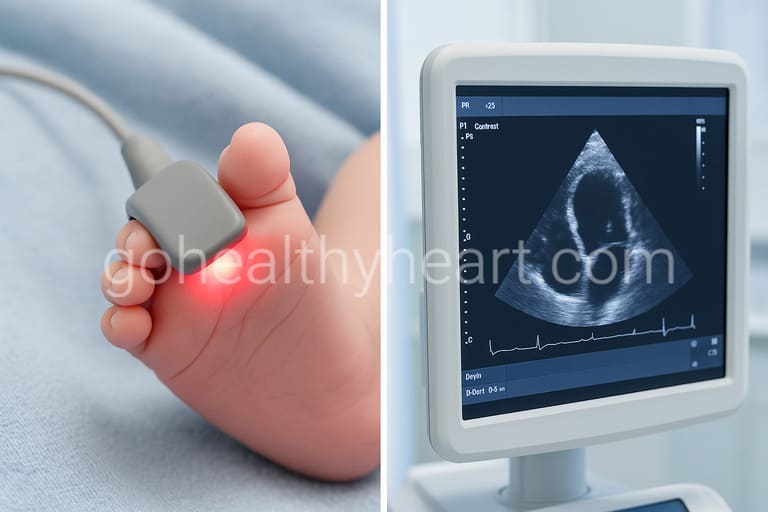Role of Pediatric Cardiologists in Newborn Care

Introduction:
The role of pediatric cardiologists in newborn care is often overlooked until it’s needed, but for families dealing with congenital heart disease (CHD), these specialists are life-savers. With congenital heart defects affecting nearly 1% of all live births, the need for specialized care from pediatric cardiologists is more critical than ever. Their expertise in diagnosing, managing, and treating heart conditions in newborns plays a significant role in ensuring positive outcomes. In this article, we will explore the vital role of pediatric cardiologists in newborn care, shedding light on how their specialized skills and interventions help protect the health of our littlest patients.
Early Detection of Congenital Heart Defects by Pediatric Cardiologists
Early detection of congenital heart defects is one of the most crucial aspects of newborn care. Pediatric cardiologists are often involved from the prenatal stage, especially in high-risk pregnancies. Fetal echocardiograms can detect heart defects even before birth, giving the medical team time to prepare and plan. This early intervention helps improve survival rates and long-term outcomes. Pediatric cardiologists work closely with obstetricians and neonatologists to ensure a smooth transition from prenatal care to postnatal management.
Prenatal screenings and fetal echocardiograms
Pediatric cardiologists’ role in interpreting early heart health indicators
Collaborating with obstetricians for integrated care
Real-life examples of successful early interventions
How Pediatric Cardiologists Help in the NICU
The neonatal intensive care unit (NICU) often becomes home for newborns with heart conditions, and pediatric cardiologists play an essential role in managing their care. From performing echocardiograms to identifying issues like heart murmurs or oxygen desaturation, these specialists are constantly involved. The role of pediatric cardiologists in the NICU doesn’t end at diagnosis — they also contribute to developing long-term treatment plans that address the unique needs of each baby.
The role of echocardiograms and other diagnostic tests
Collaboration between NICU teams and pediatric cardiologists
Identifying critical heart issues immediately after birth
Case studies of successful NICU interventions
Surgical Interventions Led by Pediatric Cardiologists in Newborns
For some newborns, surgery is an immediate necessity, and pediatric cardiologists are integral in planning and supporting these procedures. Whether it’s a complex open-heart surgery or a less invasive intervention like catheter-based procedures, pediatric cardiologists ensure that everything runs smoothly. These surgeries, though high-risk, are often life-saving. Post-surgery, pediatric cardiologists continue to monitor the baby’s recovery, ensuring that their heart is functioning well.
Common surgeries for newborn heart defects (e.g., Hypoplastic Left Heart Syndrome, Tetralogy of Fallot)
How pediatric cardiologists support surgical teams
Success stories of newborn surgeries
The importance of post-surgical monitoring and follow-up care
Long-Term Role of Pediatric Cardiologists in Monitoring Infant Health
After initial interventions, pediatric cardiologists continue to play a pivotal role in monitoring and supporting the health of newborns with heart defects. Babies who undergo heart surgeries or treatments will need regular follow-ups to ensure their heart is growing and functioning properly. Pediatric cardiologists help create long-term care plans, which might involve medications, further surgeries, or lifestyle recommendations to ensure the best possible outcome.
The need for regular check-ups and follow-ups
Monitoring growth and cardiac function over time
How pediatric cardiologists adjust care plans based on the baby’s development
Family involvement and education in long-term care
Emotional and Practical Support for Families from Pediatric Cardiologists
The journey of caring for a newborn with a heart condition is often overwhelming for parents, and pediatric cardiologists aren’t just medical experts — they’re a source of emotional support. They guide families through the complex landscape of diagnoses, treatments, and what to expect in the long term. Many pediatric cardiologists help connect families with support groups and offer practical advice on day-to-day care at home. Their role extends beyond the technical; they provide reassurance, hope, and clarity when families need it most.
How pediatric cardiologists communicate complex medical information to parents
Connecting families with resources and support networks
Practical tips for caring for a newborn with a heart defect
Stories of hope and resilience from families
Conclusion:
The role of pediatric cardiologists in newborn care is undeniably critical, particularly for infants born with congenital heart defects. From early detection and prenatal care to surgical interventions and long-term monitoring, pediatric cardiologists ensure that every newborn receives the best care possible. Their specialized knowledge and compassionate support for families make a lasting difference in the lives of babies and parents alike. If your family is facing a congenital heart diagnosis, don’t hesitate to reach out to a pediatric cardiologist — their expertise could change everything for your child’s future.




4 thoughts on “Role of Pediatric Cardiologists in Newborn Care”